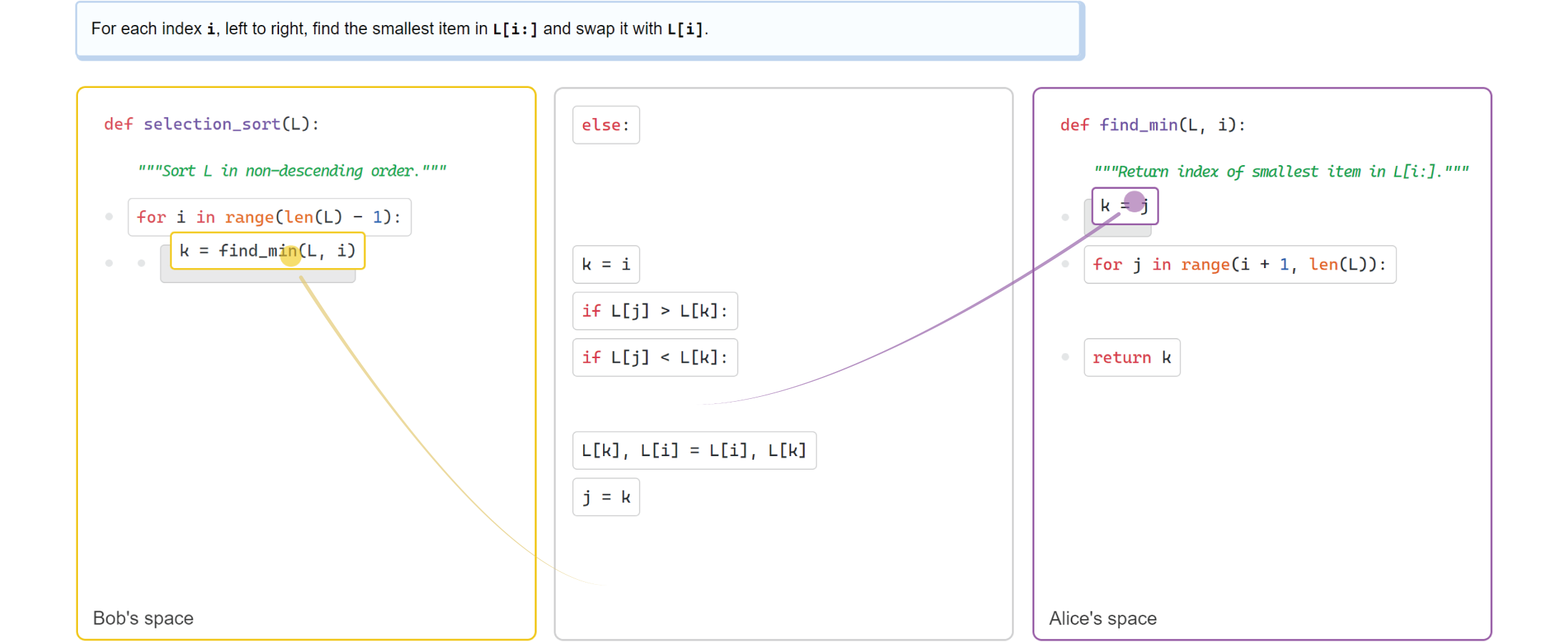
Designing Collaborative Parsons Problems with Personal-Spaces Misc
Devamardeep Hayatpur, Tehilla Helfenbaum, Haijun Xia, Wolfgang Stuerzlinger, Paul Gries
Abstract:
Pair programming has proven to be a successful pedagogical technique. However, its effectiveness depends on the frequency and quality of communication of the driver. In this work, we explore an alternative collaboration paradigm that tackles the imbalance in pair programming through Parsons problems: students are given fragments of code out of order and tasked with re-organizing them into the correct order. We then create an interdependence between students by assigning each learner to a different sub-problem in their space, termed Personal-spaces. Students must engage in dialog to negotiate, exchange, and use fragments from the same pool. In an exploratory study with nine pairs of undergraduate students, we find evidence pointing to affordances of different coordination conditions: Personal-spaces promoted ownership and engagement, while Turn taking (akin to pair programming) helped maintain a consistent train of thought. We provide guidelines for design of appropriate problem sets and collaboration tools to structure conversations.
